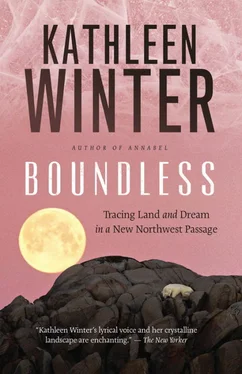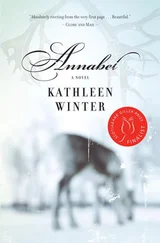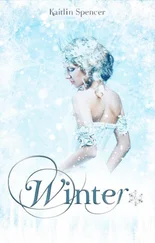“You should take the rest of that roll of duct tape,” Juliette piped up. She shoved it in the pocket now made mostly of its own self. And she was right. In the Northwest Passage, our ship and all its crew were going to need every scrap of duct tape we could lay our hands on.
CHAPTER TWO
Kangerlussuaq
WE WERE TO take a chartered plane from Toronto. At the airport our group straggled away from the well-dressed commuters with their streamlined cases on wheels: we lugged duffle bags and knapsacks with all manner of leather straps holding in binoculars, hiking sticks, and Audubon bird guides. The bearded men were out in full force; our self-named expedition leader and rear admiral were trying to figure out how to persuade airport officials that it was right and proper that they should be transporting guns.
“The guns are less for protection from wildlife,” the gunbearers shouted to the rest of us, “than they are to keep you lot in line if you get out of hand on the tundra.”
Security officials wanted to separate me from my concertina, but they appeared not to know what to do with it. They sent me to Oversize Baggage, even though its case had been designed to hold no more than a dozen cans of beer.
“Where is this headed?” asked the person behind the X-ray machine.
“Greenland.”
We were flying to Kangerlussuaq, where our ship would be waiting to take us on the first leg of the journey, up Greenland’s southwest coast. Then we’d set off across Baffin Bay and head for Pond Inlet, the first Canadian stop. From there we’d sail up Eclipse Sound between the northwest tip of Baffin Island and Bylot Island to Lancaster Sound, gateway to Roald Amundsen’s Northwest Passage. We were to traverse the passage and disembark in Kugluktuk, or “Coppermine,” to board a chartered plane back to the south. Just thinking about that itinerary made my breath catch.
“Where is that?” The official behind the X-ray machine wore latex gloves. She had her hair in a ponytail. She did not know where Greenland was. She had my concertina in her hand, and was about to thrust it into a hole in the wall. Some people can regard that kind of circumstance with equanimity.
“Greenland,” I said, with as much restraint as possible, “is the large, ice-covered land mass to the northeast of Canada.”
If Greenland was unknown to airport security, how remote from the known universe was the rest of our voyage going to be?
On board the plane a kind of peace settled over the hundred or so passengers who would become fellow travellers. We no longer had to explain to anyone our rumpled and vaguely unsettling appearance — our expedition sacks, our trousers full of flaps and extra pockets. The passengers had begun to arrange themselves around the resource staff experts in their particular fields of interest. A group of birders huddled near ornithologist Richard Knapton, comparing camera lenses and matching up bird lists to see who longed to observe a white-tailed eagle, a red-throated loon, or a phalarope on our journey. I noticed a contingent of elegant Japanese voyagers travelling with a young woman who translated for them everything we were told by our pilot or our expedition leader. The rock people pored over a geology booklet the on-board geologist, Marc St-Onge, had prepared for us. Historian Ken McGoogan launched into his impassioned story of how Franklin had not discovered the Northwest Passage at all — t had really been an intrepid Scot named John Rae. Ken’s wife, the artist Sheena Fraser McGoogan, had coloured pencils and sketchbooks ready to give to anyone who wanted to draw or record wonders we would see on the land. There was a shy, quiet anthropologist called Kenneth Lister, and a marine mammal biologist, Pierre Richard, who’d brought his elegant sister, Elisabeth, who had long wished to see the land he so loved. Many of these resource people had been in the Arctic before, but that didn’t stop a nimbus of excitement from sizzling around their conversations as our plane took off.
“I’ve been here lots of times, on scientific projects,” Pierre Richard told me. “But when you come for research it’s not the same as coming on a voyage like this, where you have time to walk and think and indulge your pure love of the land.”
A couple of seats down from me Nathan Rogers, our shipboard musician, laid his handmade guitar in a safe place, put a pair of noise-cancelling earphones on his shaved head, and sank into dreams of his own. Someone had told me that he was the son of Stan Rogers, the late Canadian folk icon whose haunting song, “The Northwest Passage” many of the passengers already knew by heart. I sat next to a Canadian Inuk woman, Bernadette Dean, who was, along with Greenlandic-Canadian Aaju Peter, a cultural ambassador; to them fell the task of teaching us about the North from the perspectives of Inuit women who have lived there all their lives — women who have come to know its animals, plants, and people, both indigenous and visiting, through long experience. As our plane took off, Bernadette busied herself writing in her notebook.
Our pilot had a cheerful American accent. As we flew over northern Quebec, he announced over the loudspeaker, “There you have it, folks, down below us… a whole lot of nothing .”
There was a collective gasp, which the pilot possibly enjoyed.
“That’s what he thinks,” muttered Bernadette, looking up from her work. Corners of photographs stuck out from pages where she had made extensive notes. The jottings were interesting to me and she saw me glance at them. “I’m writing,” she said, “to keep my mind off my little grandchild. He or she is going to be born, probably while we’re on this expedition. I’m going to wish I was there. These are notes about my great-grandmother.”
Her great-grandmother, Bernadette told me, was the Inuit clothing maker Shoofly, who in the early 1900s had fallen in love with a Boston whaling captain and given him many of her beadwork garments. He took them back to America, and Bernadette spent years trying to find them as part of her cultural heritage.
“I found them,” she told me, “in storage, at the Museum of Natural History in New York City. It took me a long time to convince them to even let me come and see them. My own great-grandmother’s clothes! Finally they gave me a window of two weeks. I accepted. I went down there and — here’s a picture of me looking at the clothes.” She showed me a photograph of herself lifting the garments from a museum drawer. “See, there’s the Scandinavian curator.” She pointed to a watchful figure standing beside her. “Look how close to me she is. See, they made me wear white gloves.”
“That curator looks worried.”
“They didn’t want me to touch my great-grandmother’s clothes. See her name? The whaling captain wrote her name, Shoofly, on her clothes.”
“I see it.”
“Then I said, ‘That’s not everything. That’s not all the clothes. This set of garments has other parts. Where are they?’ And that curator doubted me. She said there were no other parts. But I wanted to find them so I started looking. I started opening drawers until I found them. I found them and she didn’t even know what they were. She had no idea. It felt like being a kid again, having a white teacher.”
OUR PLANE TOUCHED down in Kangerlussuaq, where an old Russian bus waited, against sere grasses and rock faces seamed with snow, to take us to the ship. The landscape looked a bit like what I had seen of Labrador: rock loomed jagged and high against a big sky. Plants were dwarfed, yet sunlight shone through purple or white petals like a projector’s light blazing through film and lighting up the vegetation in illumined detail.
As we piled onto the bus, Pierre Richard, the marine biologist, called to Nathan Rogers, “We have another musician on board — she has a concertina in her beer cooler!”
Читать дальше












